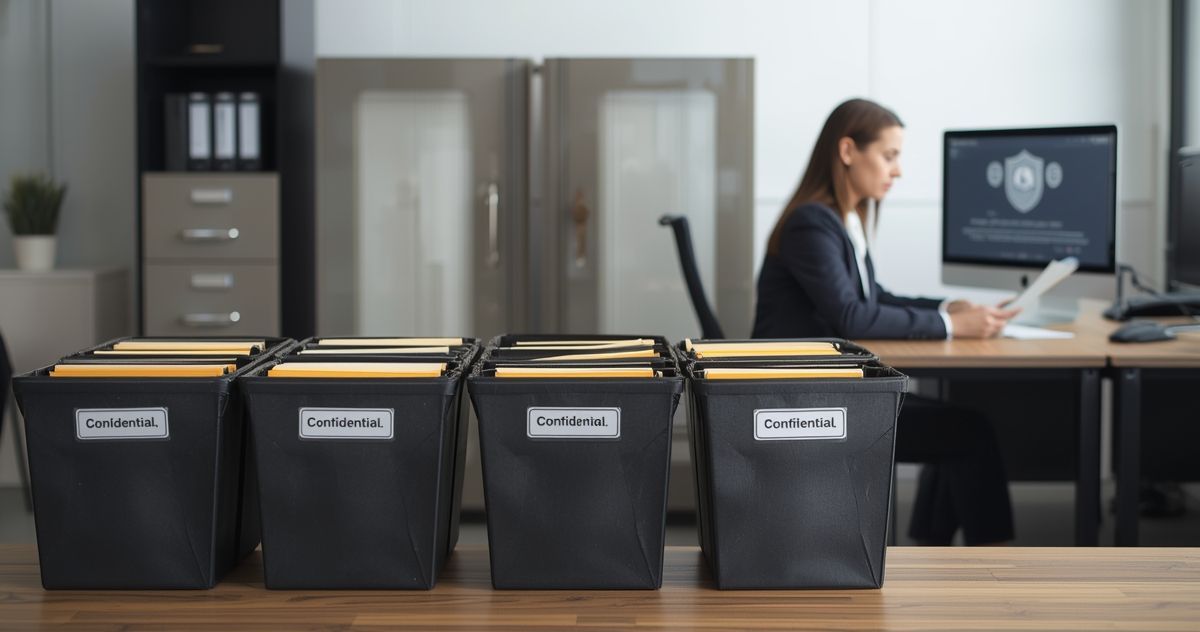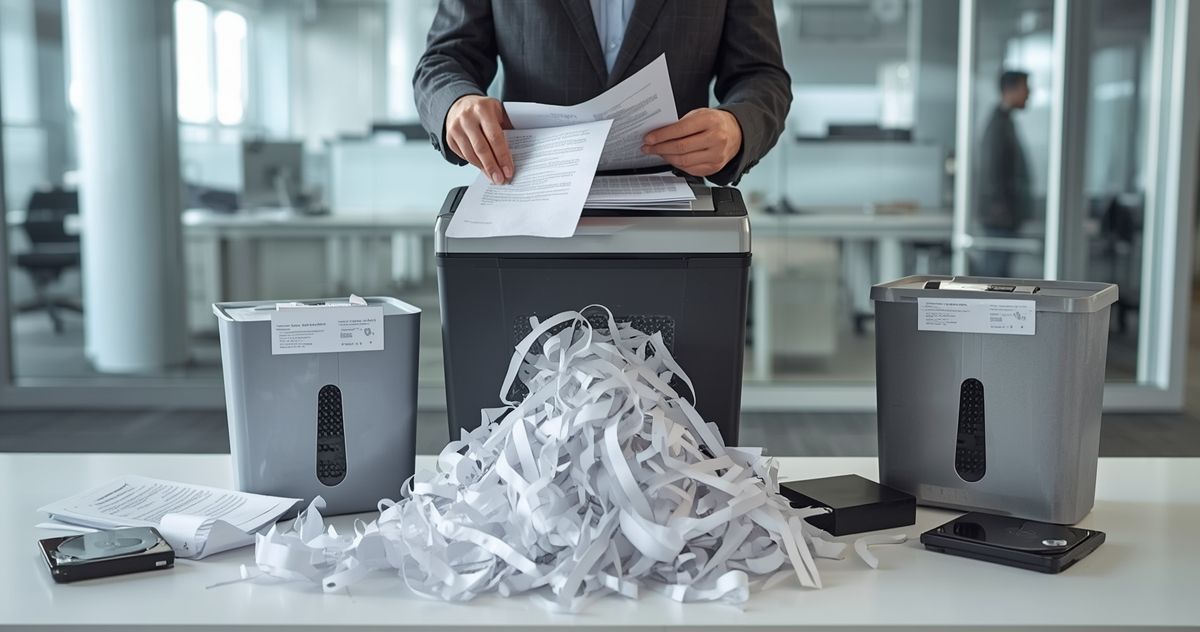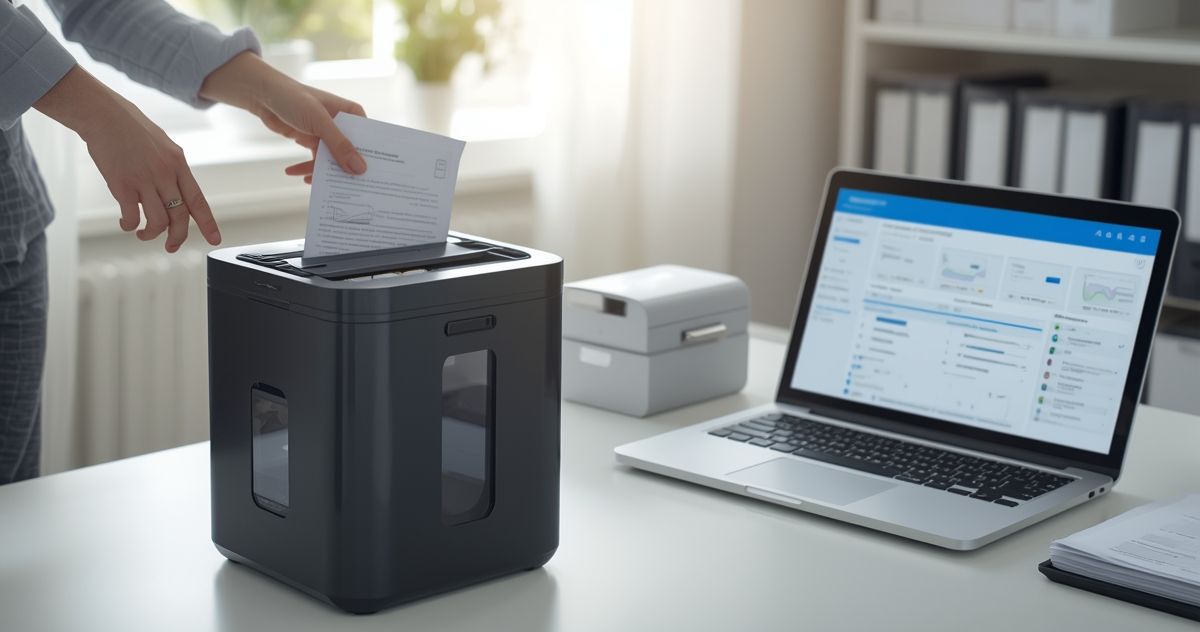The Hidden Dangers of Paper Recycling Without Proper Shredding
The Hidden Dangers of Paper Recycling Without Proper Shredding
Recycling paper is a positive step towards reducing waste, conserving energy, and protecting our environment. However, do you know the risks involved if sensitive documents aren’t shredded before being sent for recycling?
While it may seem like a harmless step to skip, improperly handling confidential papers can lead to privacy breaches, identity theft, and even financial fraud.
This blog dives into the dangers of paper recycling without proper shredding, what makes it a critical process, and how you can ensure that your documents remain protected while you do your part for the environment.
Why Proper Shredding Matters Before Recycling
Recycling centers sort, store, and process tons of paper materials every day. Along this process, sensitive information such as financial records, medical documents, legal paperwork, and personal identification numbers may remain accessible to prying eyes. Here’s why proper shredding is a must before recycling your documents:
1. Protection Against Identity Theft
Insufficiently shredded or intact documents provide thieves with easy access to personal details such as your name, address, and social security number. With over 5.7 million cases of identity theft reported in the U.S. alone in 2022, leaving personal information unprotected is a risk you cannot afford.
For example, an intact medical bill thrown in the recycling bin could be enough for a thief to commit insurance fraud in your name. Shredding these papers into indecipherable pieces ensures your privacy remains intact.
2. Secure Disposal of Confidential Business Data
Businesses deal with large volumes of sensitive information daily, including customer records, financial reports, and proprietary data. According to the Verizon Data Breach Investigations Report, 19% of data breaches involve physical documents. Failing to shred and recycle paper with confidential content could expose your organization to legal and reputational damage.
Seemingly harmless printouts—like meeting notes or presentation drafts—can also reveal valuable insights to competitors. Incorporating thorough shredding practices mitigates these risks.
3. Compliance with Privacy Regulations
Many industries are governed by stringent data protection laws that include proper disposal of confidential materials. Regulations such as the General Data Protection Regulation (GDPR) and the Health Insurance Portability and Accountability Act (HIPAA) mandate secure handling of personal and sensitive data. Failure to comply can result in hefty fines, lawsuits, and reputational harm.
4. Dumpster Diving Is Still a Threat
Think dumpster-diving is a concern of the past? Unfortunately, it’s still widely used by thieves to locate overlooked information in discarded paperwork. Unshredded documents in a recycling bin could become an easy target in this scenario. By shredding your papers before recycling, you eliminate this entry point for fraudsters.
Common Misconceptions About Document Shredding
While shredding is crucial, there are a few misconceptions that often lead people to forego the process altogether. Below we debunk these myths to underscore why shredding must be a non-negotiable practice.
Myth 1. “Recycling facilities destroy sensitive documents for me.”
It’s a common assumption that recycling centers will destroy sensitive materials as part of the recycling process. Unfortunately, this is not true—most facilities focus solely on sorting and processing materials. They’re also often staffed and accessible, which means your documents go through many hands before they’re recycled.
Myth 2. “I only shred obvious documents, like financial statements.”
While financial records are an obvious choice for shredding, papers like grocery receipts, junk mail, or meeting notes may contain valuable personal details.
Never assume any document is "too insignificant" to be mishandled. It’s safer to shred everything with personal or business-related information.
Myth 3. “Tearing paper by hand is enough.”
Tearing sheets of paper in half or into a couple of pieces may feel like an effective shortcut, but this approach is far from secure. The less fragmented a document, the easier it is to piece together. Industrial shredders cut paper into cross-sections or micro-particles, making reconstruction nearly impossible.
How to Shred and Recycle Paper the Right Way
Wondering how to ensure thorough shredding doesn’t compromise your recycling efforts? Follow these best practices to balance security and sustainability:
1. Invest in a Reliable Shredder
Investing in a high-quality paper shredder with crosscut or micro-cut features is worth the money. These shredders produce finer pieces, greatly reducing the chance of document reconstruction. Many shredders are also designed to handle staples and paper clips to save time during preparation.
2. Organize Before Shredding
Sort your documents into different categories, such as those with personal information, those with financial data, and those with generic content. This ensures
no sensitive documents are accidentally overlooked during shredding.
3. Use Secure Shredding Services for Bulk Paper
Professional hard drive shredding is a great option for large volumes of sensitive material. Many services offer on-site or off-site shredding to cater to businesses and individuals. Once your documents are destroyed, they’ll provide a Certificate of Destruction to confirm secure processing.
4. Bag it Right for Recycling
While shredded paper is recyclable, it can complicate the sorting process at centers. To avoid this, place shredded paper in clear, recyclable bags to keep it contained. Check with your local recycling program to confirm their preferred method for handling shredded material.
5. Switch to Digital Storage When Possible
Digitizing documents through scanning reduces the volume of paper generated over time—and accordingly, the shredding required. Cloud storage solutions provide a secure, convenient option for safeguarding files while reducing physical clutter.
Shredding Safeguards Your Privacy and the Planet
By overlooking shredding before recycling, you not only risk your personal and business security but may also inadvertently contribute to avoidable data breaches. With the growing threats of identity theft and fraud, shredding has become more than a recommended precaution—it’s a necessity.
At the same time, prioritizing proper recycling practices ensures that your commitment to privacy doesn't come at the cost of sustainability. With a little effort, you can shred your way to a safer tomorrow while still protecting our planet's resources.
Ready to shred your documents securely?
At Data Shredder Corporation in Massachusetts, we understand how crucial it is to destroy sensitive data securely and recycle e-waste. We provide top-notch hard drive data destruction, shredding, and e-waste recycling services in Massachusetts, ensuring your peace of mind while benefiting the planet's health. We also provide top-notch hardware asset management services.
Your trust is our top priority, and we're dedicated to safeguarding your information with our certified, dependable solutions. Before a security breach even whispers your name, give us a call at(508) 978-5198 or fill out our contact form.











Share On: